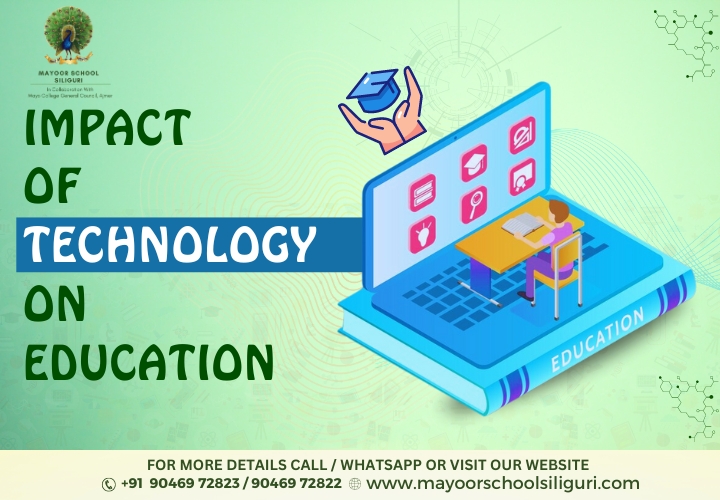
After Covid, the education sector, in particular, has seen a significant transformation in technological advancements. From online learning platforms to interactive digital classrooms, technology has reshaped the educational landscape, offering new opportunities and challenges. This blog explores the role of technology in schools and its potential to enhance learning experiences.
One of the most significant impacts of technology on education is the unprecedented access to information. With the internet at our fingertips, students and educators can access a wealth of knowledge from anywhere in the world.
Technology in teaching makes sure that learning is no longer confined to textbooks or classrooms. Students can explore
a wide range of subjects, watch educational videos, and participate in online
discussions, broadening their understanding beyond rote learning.
Technology has enabled personalized learning experiences which is one of the most important of technology in education that is tailored to individual students' needs, preferences, and learning paces.
Adaptive learning
software and AI-driven platforms can analyze students' performance and adjust
content accordingly, ensuring that learners receive instruction at the right
level of difficulty.
Technology facilitates collaboration and communication among students, teachers, and parents, creating a more interconnected educational environment. Tools like Google Classroom, Microsoft Teams, and Zoom have become essential in modern classrooms, enabling real-time interaction and teamwork.
The Effects of technology on student learning are awesome. For example, Virtual
classrooms allow students from different geographical locations to collaborate
on projects and share ideas, fostering a global perspective. With the help of the school mobile app, parents can stay informed about their children's progress
and participate more actively in their education through online portals.
Traditional learning methods can sometimes be passive and monotonous, leading to disengagement. Technology introduces interactive and engaging learning experiences through multimedia content and gamified content. These innovative approaches follow educational technology trends capture students' attention and make learning more enjoyable.
For example, Mayoor School Siliguri collaborated with FIM
(First in Maths) where children can learn mathematics through games in the
software. The Integration of technology in
classrooms through interactive whiteboards and digital tools enables teachers to present
information dynamically, catering to various learning styles.
As technology continues to evolve, it will have a big impact on
education. Emerging trends such as artificial intelligence, virtual reality,
and blockchain hold the potential future of
technology in education to transform the learning
experiences.
The impact of digital transformation in education is profound and multifaceted. As we continue to integrate technology into learning environments, it's essential to balance innovation with accessibility and ethics. By doing so, we can harness the power of technology to create more inclusive, engaging, and effective educational experiences for learners worldwide.
The journey of integrating technology into education is ongoing, and its future holds endless possibilities. Educators, policymakers, and technologists must collaborate to ensure that technology serves as a tool for empowerment, rather than a barrier, in the quest for knowledge and growth.
Read More Article: Why Preschool Education is Important: Building a Foundation for Lifelong Learning